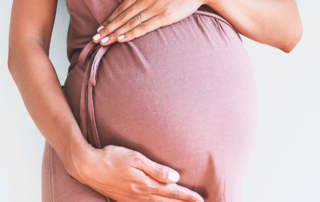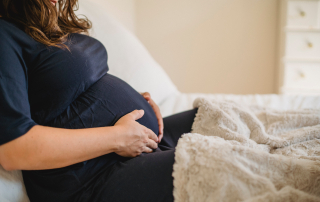High Prevalence of OCD in Pregnant and Postpartum Women
While we have relatively limited information regarding the prevalence of obsessive-compulsive disorder (OC) during pregnancy and the postpartum period. Previous studies have indicated that women may be more vulnerable to the onset of OCD during the postpartum period. Other studies indicate that women with OCD may experience worsening of OCD symptoms during pregnancy and the postpartum period. A recent study published in the Journal of Clinical Psychiatry looks at the prevalence [...]
Essential Reads: Cannabis and Breastfeeding
A significant number of women consume cannabis while breastfeeding. What do we know about the effects of cannabis on the nursing infant?
Essential Reads: Strategies for the Prevention of Postpartum Depression
Postpartum depression (PPD) is a relatively common problem, affecting between 10% and 15% of women after delivery. Although it is difficult to reliably predict which women in the general population will experience postpartum depression, it is possible to identify certain subgroups of women who are at increased risk for postpartum affective illness. For example, women who have had one episode of postpartum depression have about a 50% chance of experiencing PPD [...]
High Levels of Distress in Pregnant and Postpartum Women During the Pandemic
This international survey demonstrates that pregnant and postpartum women are more likely to report elevated symptoms of depression, anxiety, and post-traumatic stress than others in the general population in the context of the COVID-19 pandemic.
Essential Reads: ADHD in Girls and Women
In childhood, ADHD is clearly more common in boys than in girls; however, in adult samples, the sex differences in prevalence are mush smaller. There is also increasing recognition that girls and women may present with a different constellation of symptoms and behaviors. For example, in children, girls are more likely to present with symptoms of inattention, whereas boys are more likely to exhibit hyperactivity and other disruptive behaviors. Psychiatric comorbidity [...]
Caffeine and Pregnancy: How Much is Safe?
Many women ask about the safety of drinking caffeinated beverages during pregnancy. A recent study looked at this question, analyzing data from the NICHD Fetal Growth Studies–Singletons, which included a group of 2,055 nonsmoking women at low risk for fetal growth problems. Caffeine consumption was evaluated using plasma concentrations of caffeine and paraxanthine (a metabolite of caffeine) and self-reported caffeinated beverage consumption at 10 to 13 weeks gestation.






